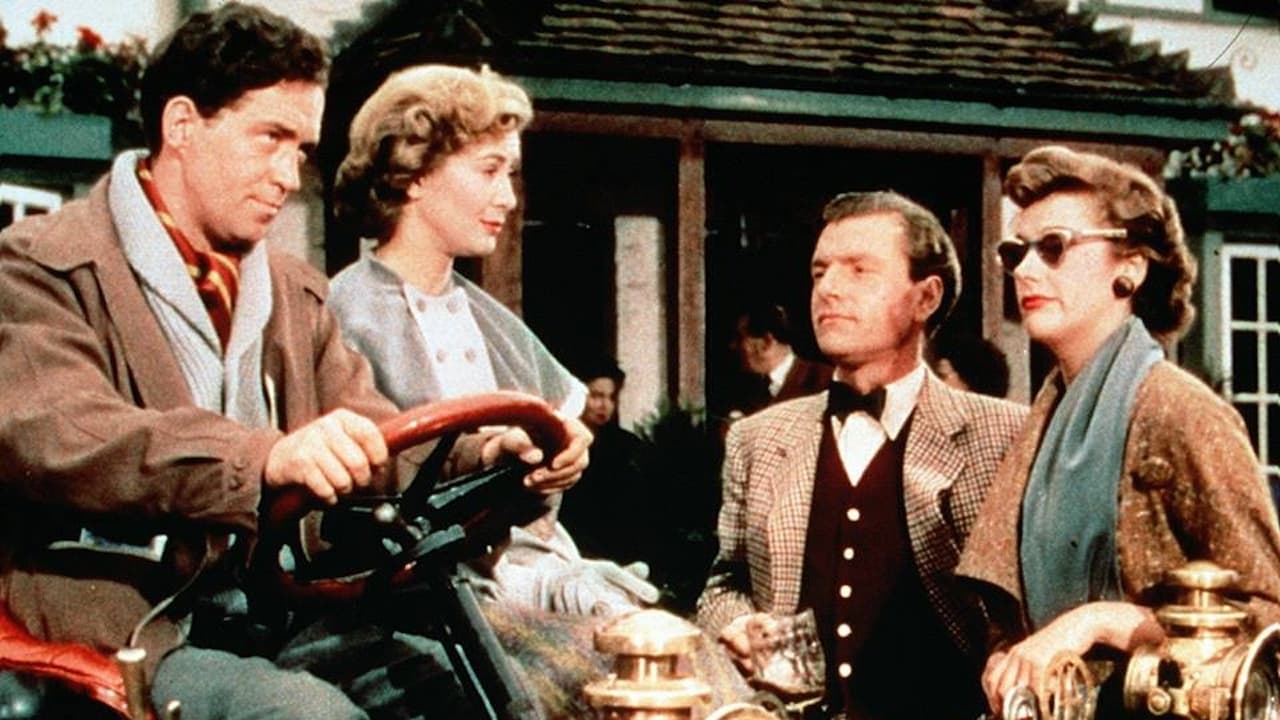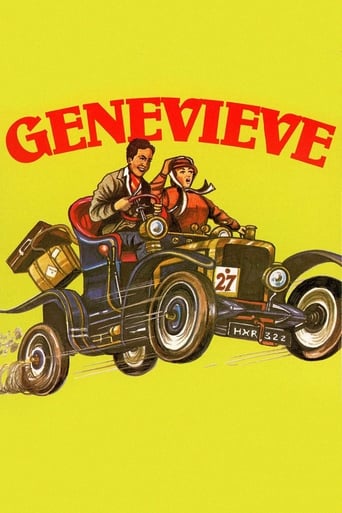

I saw this film a few times as a young boy forty-odd years ago and quite liked it, mainly because of the old cars, although it was a never a favourite. However, having watched it again today I am shocked at just how horrible it is. The two main characters are plain nasty. Even the supposedly 'nice' one, John Gregson. They are nasty to each other, nasty to their wives/girlfriends, nasty to other motorists, having no regard for anything or anyone outside of their own narrow little world. If this is an example of how England used to be, then it's as a warning of how the upper-middle class Hooray Henrys used to (still do?) behave. Leaving this aside, as a film it's pretty dull and very dated. Even the Oscar-winning harmonica score just keeps grating on and on. Whimsy? Not a bit of it. Just another example of how bad some of Britain's filmmaking was. There are many better films from this period, so keep this one as a documentary - i.e. this is how Britain looked in the 50s before the car took over, and this is how NOT to behave.Alternatively, forget all about it. It's really not worth watching.
... View MoreAlan & Wendy McKim, Ambrose Claverhouse & Rosalind Peters are two classic car enthusiast couples taking part in the annual London to Brighton car rally. For the return trip the gentlemen enter into a friendly wager to see who can reach Westminster Bridge first, but what started out as friendly rivalry turns into a very intense contest indeed.I think what stands out the most in Genevieve {Genevieve being the name of the McKim's car} is the wonderful screenplay from William Rose. Full of British sensibilities and sexual tension, Genevieve ranks as one of the best British films from the 50s. Both couples seem poles apart but the men are bound by a machismo sensibility, whilst the women are both astutely charming in loyalty with a bullish awareness of the situation. John Gregson, Dinah Sheridan, Kenneth More and Kay Kendall are all excellent in the lead roles, the colour booms out from the screen, and Larry Adler's harmonica backed score is a perfect musical delight.Charming, breezy, and a British comedy classic, Genevieve really is a spiffing film for any day of the week. 9/10
... View MorePerhaps I wasn't in as receptive a mood when I watched this, or perhaps I was expecting too much of a film which won best picture in two venues, but I somehow can't be as wildly enthusiastic about this film as most other commentators herein.True, it boasts an attractive and capable cast and, true, it is a delight to view in Technicolor, uncommon for British comedies of the day; but it also suffers from other common production practices which detract from the realism, particularly in the midstream musical number.When it comes right down to it, however, I think my mild dissatisfaction is due to William Rose's screenplay, which admittedly contained scenes of laugh-out-loud amusement as well as heart-touching sentiment; but unfortunately, there were other parts that I found simply downright tedious. This I don't find surprising, however, since he also wrote the screenplays for two pictures a decade later which I simply didn't like: "It's a Mad...World" and "The Russians Are Coming...." If you liked those, take this as a recommendation to see this one, especially since this one is better, in my opinion, than those two put together. Finally, much has been made of Kay Kendall's beauty, which I'm not denying -- she reportedly turned the head of every man who ever came in contact -- but in this case, my taste runs more decidedly in favor of the other female lead, Dinah Sheridan.Still, don't let my comments deter you...watch this movie and enjoy the delights it does offer, in particular the interplay of the four leads, and a return to life in a simpler day and time.
... View MoreBeyond the marvelous cars, the jokes and banter between the couples and the quirky soundtrack, it's the moment of genuine and somewhat surprising kindness of the lead actor in the story which really sets this gentle comedy apart. Without Allan's reaction to the old gentleman who admires his car, the movie would otherwise be a one note comedy with jokes and rather nice scenery. The poignancy of the gesture however, allows Allan to quietly and magnificently overcome his obsessiveness, which though amusing at times is also wearing. This, along with the beauty of the English countryside, a component as important as the characters themselves, makes this movie an absolute charmer. The final shot replete with damp mist and fog added the ultimate British ambiance to its delightful conclusion.
... View More